~ましょう – How to Say “Let’s Do” in Japanese
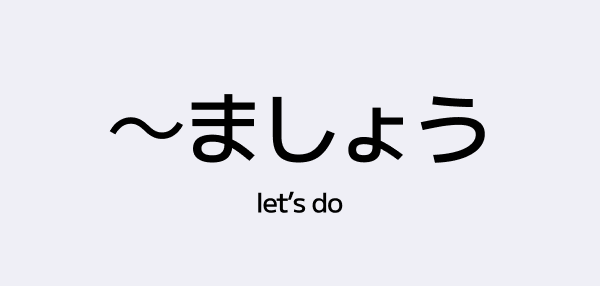
Ready to invite someone to do something in Japanese? Whether it’s “Let’s eat,” “Let’s go,” or “Let’s study together,” the grammar you need is:
~ましょう
This form is short, easy, and super useful — especially when making plans or encouraging someone to take action with you.
In this guide, you’ll learn:
- What ~ましょうmeans and when to use it
- How to form it with any verb
- Real-world examples and variations
- Beginner-friendly practice exercises
Let’s get started! (いきましょう!)
What Does ~ましょうMean?
「~ましょう」is a polite verb ending that means:
“Let’s ___” (i.e., you’re inviting someone to do something with you)
It’s often translated as:
- Let’s do ___
- Shall we ___?
It’s a great way to make suggestions or respond to someone’s idea in a friendly way.
How to Make the ~ましょうForm
1. Start with the ます-form of a verb
2. Drop ~ます
3. Add ~ましょう
Examples:
- たべます → たべましょう → Let’s eat
- のみます → のみましょう → Let’s drink
- いきます → いきましょう → Let’s go
- べんきょうします → べんきょうしましょう → Let’s study
Want to sound a little softer or polite when making a suggestion? Add か:
- いきましょうか?→ Shall we go?
When to Use ~ましょう
Use ~ましょうwhen:
- You’re inviting someone to do something with you
- You’re offering to help
- You’re encouraging someone to take action
- You’re making plans
It’s polite, inclusive, and quite natural in everyday Japanese.
Real-Life Examples Using ~ましょう
いっしょにたべましょう!
Issho ni tabemashou! → Let’s eat together!
もういちどべんきょうしましょう。
Mou ichido benkyou shimashou. → Let’s study one more time.
はやくいきましょう!
Hayaku ikimashou! → Let’s go quickly!
このえいがをみましょう。
Kono eiga wo mimashou. → Let’s watch this movie.
マッサージをしましょうか?
Massaji wo shimashou ka? → Shall I give you a massage?
Practice Time!
Practice 1: Make a Suggestion
Turn these into ~ましょうform:
のみます→__________
します→__________
かきます→__________
はなします→__________
かえります→__________
Answers:
のみましょう
しましょう
かきましょう
はなしましょう
かえりましょう
Practice 2: Translate It!
Write these in Japanese:
- Let’s go to the park.
- Let’s eat sushi.
- Shall we study together?
Answers:
- こうえんにいきましょう。
- すしをたべましょう。
- いっしょにべんきょうしましょうか?
Bonus: Negative Form?
There’s no true “negative” version of ~ましょう, but if you want to invite someone not to do something, you can say:
- ~のはやめましょう → Let’s not do ___
- ~ないほうがいいです → It’s better not to ___
Example:
- けんかはやめましょう。→ Let’s not fight.
- よるにあまいものをたべないほうがいいです。→ Better not eat sweets at night. 🍬
It's very common to seeやめましょうon Japanese signs. They just want you to be a better citizen, you know?
- ポイすてはやめましょう→ Let's not litter
- あるき スマホ は やめましょう -> Let's not use smartphones while walking
- とびこみ じょうしゃ は やめましょう -> Let's not rush into (literally, "jump onto") trains
(Yes, we can remember millions of these little rules)
Final Recap
~ましょう is your go-to grammar to say “Let’s do ___” in Japanese!
- Use it with the ます-stem of verbs
- Add ~ましょうto invite someone to join in
- Add ~ましょうかto soften or suggest politely
Let's get used to inviting people to do things together.がんばりましょう!
Related Grammar
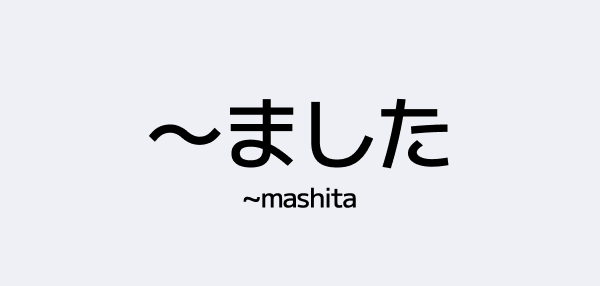 F Rank
F Rank~ました (Polite Past Form)
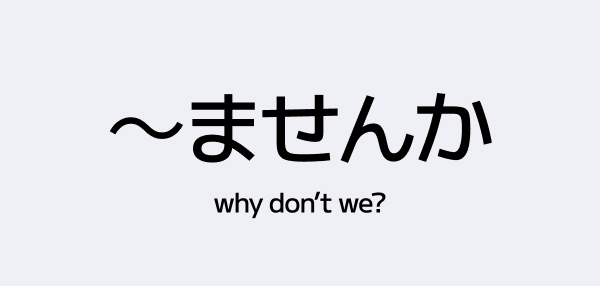 F Rank
F Rank~ませんか – How to Politely Say “Why Don’t We…?” in Japanese
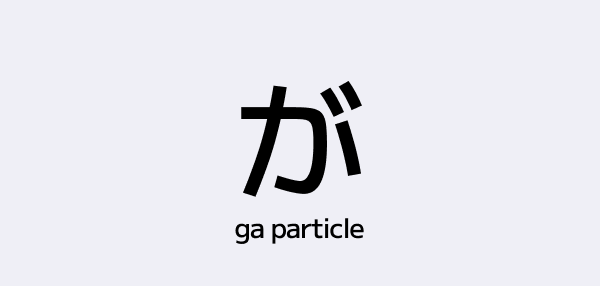 F Rank
F RankThe が (Ga) Particle
Discover how the Japanese particle が works as a subject marker, how it differs from は, and how it adds nuance, emphasis, and clarity in both casual and formal contexts.
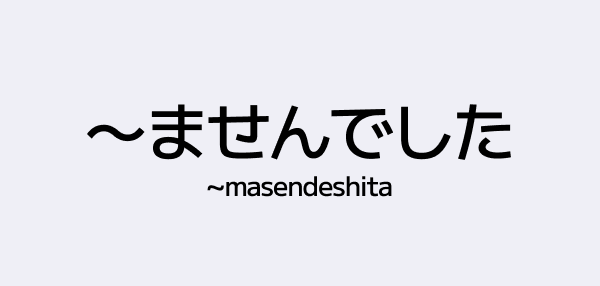 F Rank
F Rank~ませんでした (Polite Past Negative Form)
